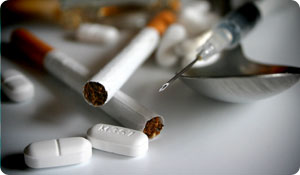
With all the talk in the media about teenagers and substance abuse, it's easy to overlook the fact that people of all ages can abuse drugs and alcohol. In fact, the surprising truth is that substance abuse among baby boomers has been increasing in recent years.
According to a study released by the Office of Applied Studies, Substance Abuse and Mental Health Services Administration, a division of the Department of Health and Human Services, older people account for a greater share of people admitted to substance-abuse treatment programs than they used to. In 1992, only 6.6 of all admissions were people aged 50 or older. But in 2008, that percentage rose to 12.2. And the number of older people who abused multiple substances almost tripled in that time frame.
While alcohol remains the most common substance abused by older people, other illicit substances are catching up. For example, while in 1992 almost 85 percent of baby boomers reported that alcohol was their primary drug of choice, in 2008 fewer than 60 percent made that claim. What's gaining in popularity? Heroin is the second most common drug abused, with 16 percent of older people in treatment programs saying it's their primary drug of choice, followed by cocaine (11.4 percent), prescription pain relievers (3.5 percent), marijuana (2.9 percent), amphetamines (2.5 percent), and other substances (4.0 percent).
While substance abuse is dangerous for people of any age, being a baby boomer who abuses drugs and/or alcohol carries special risks. For one, certain physiological or psychological changes related to aging may magnify the effects of these substances on the body. Also, older people may take medications that don't interact well with illicit substances.
If you or someone you love has a substance-abuse program, get help as soon as possible. Speak to your doctor about treatment programs, and don't ignore the signs of substance abuse because you think it's just a problem for young people. People of any age can and do get better with proper therapy.
Office of Applied Studies, Substance Abuse and Mental Health Services Administration, www.oas.samhsa,gov.





